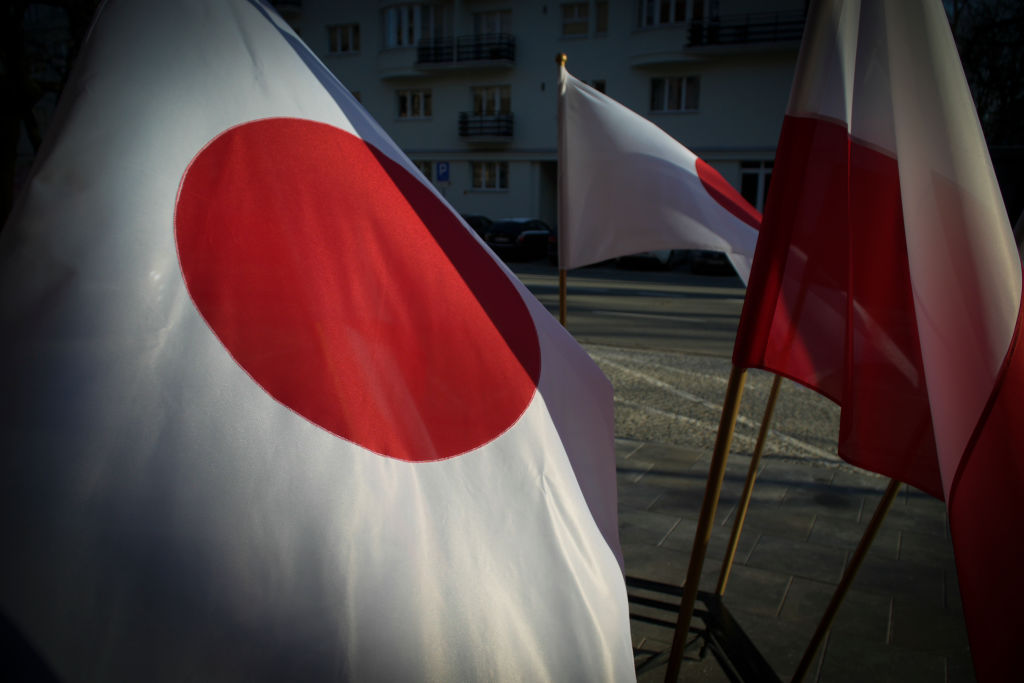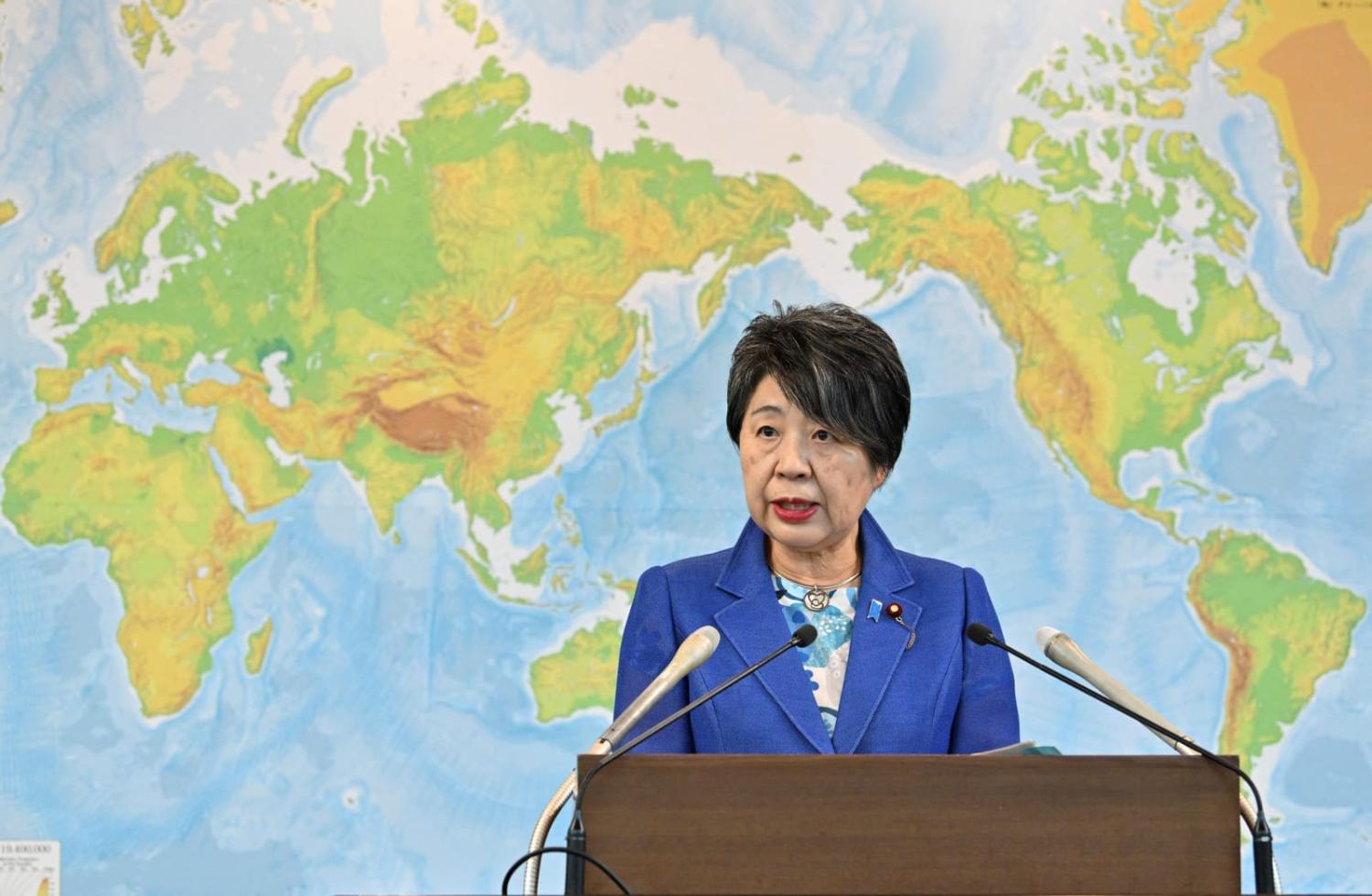In September 2023, Japan’s Foreign Minister Yoko Kamikawa became the first female foreign minister of Japan in 20 years, and she has since showed off her skills as an effective diplomat. Following her appointment, she has already made several high-profile overseas visits, including to the Middle East, Ukraine, and a tour of Europe and North America. In January 2024, Kamikawa also oversaw the launch of a new “Women, Peace and Security (WPS)” task force to address gender-inclusive security issues. While not deviating from Japan’s long-term foreign policy posture — as a proactive contributor to peace — her “energetic” diplomatic activities have propelled her into the global limelight.
A veteran politician with a remarkable résumé, Kamikawa’s alma maters include the University of Tokyo and Harvard University’s John F. Kennedy School of Government, and she also worked as a fellow on the policy staff of then US Senator Max Baucus. After entering politics, she was Japan’s Justice Minister three times and also served as a Minister of State for Gender Equality and Social Affairs.
As Justice Minister in 2018, Kamikawa signed off the executions of members of the Aum Shinrikyo cult, including founder Shoko Asahara, who perpetrated the deadly 1995 sarin gas attacks on Tokyo’s subway system. Her approvals of these executions further strengthened her domestic reputation as a level-headed and courageous leader who does not shy away from presiding over difficult issues. Due to concerns over potential backlash from remaining Aum followers, Kamikawa and her immediate family are provided with lifelong police protection.
Bolstered by her positive public image, Kamikawa recently emerged as one of the potential candidates suitable to become prime minister amid a government mired by corruption scandals.
The long-ruling Liberal Democratic Party (LDP) is facing one of its biggest crises in years due to a slush fund scandal involving 567.8 million yen (US$3.8 million). Approval ratings for the party and Prime Minister Fumio Kishida have plummeted in recent months. In a bid to regain public trust, Kishida quickly reshuffled his cabinet and unveiled political reforms to overhaul the LDP. The crisis has nevertheless fuelled rising speculations about the longevity of his premiership and his likely successors.
However, despite her rising popularity, it is unclear if Kamikawa can amass enough party support to become Japan’s first female prime minister. Factions within the ruling LDP have played a significant role in shaping Japan’s leaderships for decades. These groupings are organised around a particular leader and have distinct ideological leanings, providing electoral and financial support for their members. The members, in return, back their factional leader during the party’s internal race to become prime minister.
In the wake of the slush fund scandal where several factions were suspected of under-reporting income received in political fundraising, major factions have disbanded. This includes Kochikai, the faction that Kishida headed and to which Kamikawa also belonged. She will likely need the support of other factions if she decides to run for office. It also remains to be seen if LDP would move towards an abolishment of the faction system permanently, and whether the current administration could come up with an alternative model that could change how leaders are chosen away from factional politics.

Gender parity and a tough working environment for females in politics also remain a huge hurdle in Japan. The appointment of Kamikawa, along with four other female ministers to the Japanese cabinet last year, attracted positive press globally. According to the Global Gender Gap Index 2023, Japan ranks among the lowest globally in terms of female political empowerment, at 138th place out of 146 countries. Any additional female representation in public life is thus a welcomed development. Even so, it is by no means a record-breaking milestone, tying with Prime Minister Koizumi Junichiro’s first cabinet in April 2001, and Prime Minister Abe Shinzo’s September 2014 cabinet. This suggests that political empowerment for women has seen little improvement over the past 20 years.
Another key challenge for female politicians in Japan is persisting gender typification. For example, LDP’s Vice President and former Japanese Prime Minister, Taro Aso, was criticised for making several sexist remarks about Kamikawa. He publicly referred to Kamikawa as obasan, a word used for older women that can carry a derogatory connotation, and also described her as not “beautiful”. Although it seemed that he had intended to praise Kamikawa’s abilities and also called her a “rising star”, it is not likely that a male minister would receive similar comments about his age or looks.
While Kamikawa herself has not expressed any ambition to run for top office, she is notably untainted by the slush fund scandal that her party is in the middle of, adding to her clean image. The foreign minister also took the high road in response to Aso’s reportedly sexist remarks, saying that she “appreciate[s] any and all feedback” and emphasised her commitment to her work in diplomacy.
Regardless of whether the male-dominated Japanese political environment is ready for a female leader, Kamikawa’s low-key, composed style of leadership may be exactly what the LDP needs to win back public confidence.

